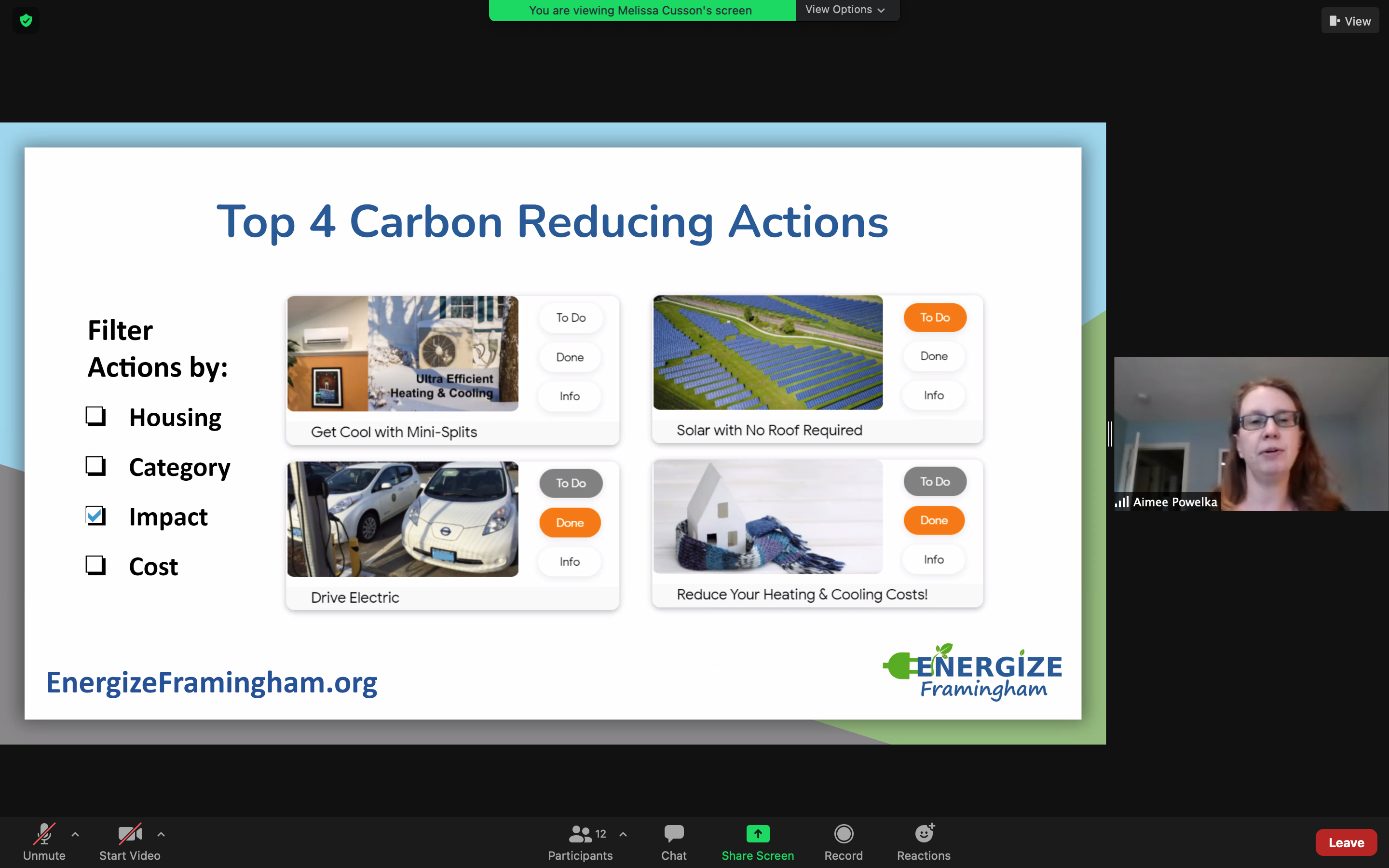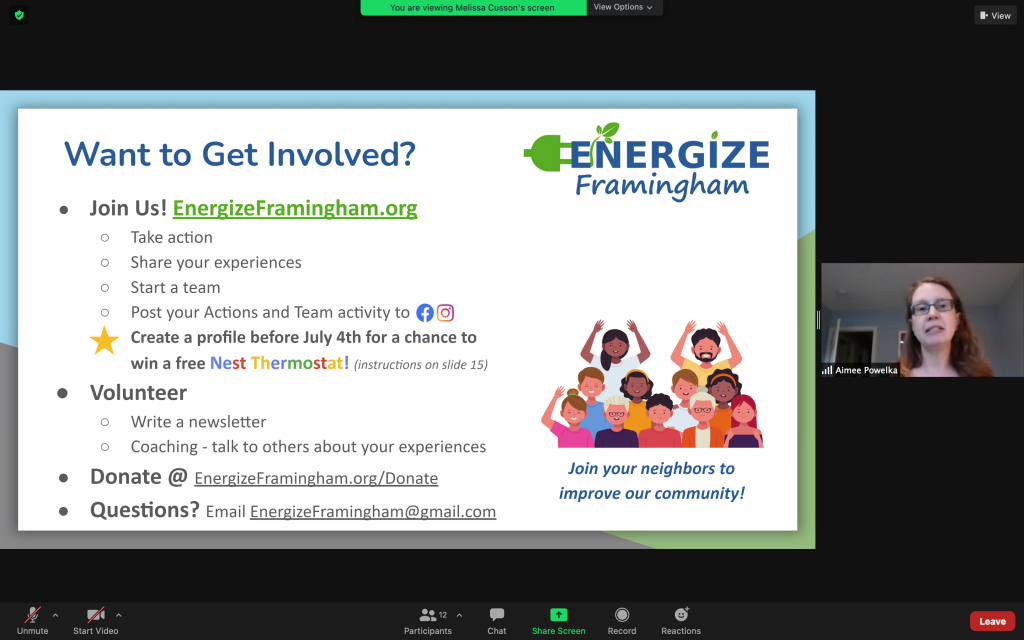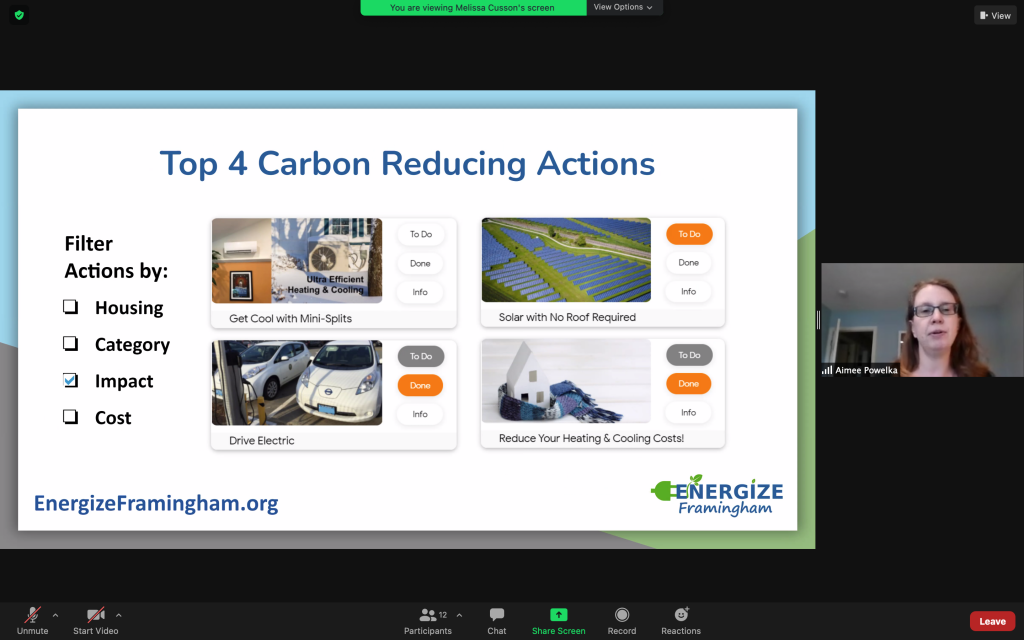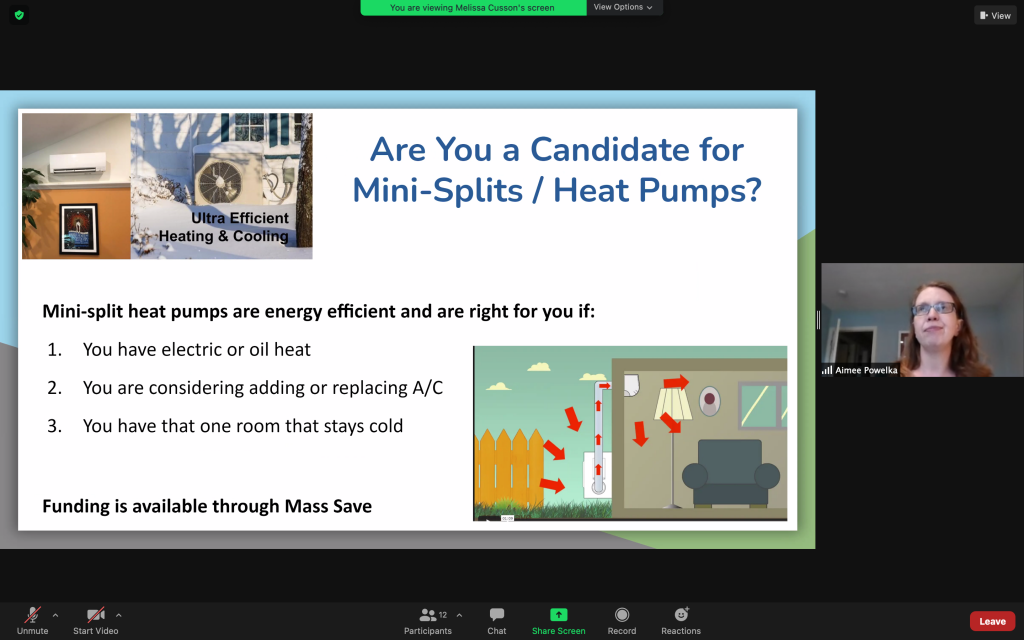By Luke Canavan
***

FRAMINGHAM -The League of Women Voters (LWV) and Energize Framingham hosted a virtual hour-long event to discuss the new nation-leading climate bill recently passed in Massachusetts, as well as ways that Framingham residents can help combat climate change on a local level yesterday afternoon, April 24 via Zoom.
Speakers included Massachusetts State Rep. Maria Robinson, Energize Framingham Leaders Aimee Powelka and Melissa Cusson, and Stephanie Deely of co-president of the Framingham chapter of the League of Women Voters.
First to speak was Robinson, who went over the recently passed climate bill, often referred to as the Road Map Bill.
“[The Road Map Bill] codifies a particular plan for the Commonwealth of Massachusetts to reach net zero emissions limits by the year 2050,” said Robinson. “Then we have to create new emissions limits every five years to ensure we’re actually achieving reductions in greenhouse gas emissions.”
[broadstreet zone=”59945″]
“We want to make sure that people are considering, of course emissions and environmental concerns, but also economic concerns [and] public health impacts, which I think are really underrated in the conversation around climate change,” said Robinson.
Another portion of the bill prompts the expanding of offshore wind.
“We’re looking to increase the total number of megawatts that we acquire to 5600 megawatts here in Massachusetts, which is an enormous amount of offshore wind, over the next couple of years,” said Robinson. “That’s so important for us because a lot of our net zero goals really do rely on us getting major offshore wind along the Cape.”
The bill also aims to expand on the definition of environmental justice populations.
[broadstreet zone=”59982″]
“The definition, according to this bill, is defined as a neighborhood that meets one, or more than one, of the following criteria, which is: an annual house income that’s less than 65% of the statewide average, that minority communities comprise about 40% of the population, that a quarter of the households lack English language proficiency, or some combination thereof, in where the overall neighborhood doesn’t exceed more than one and half the statewide median income,” said Robinson.
Some of the controversy around the bill has had to do with the section on net zero energy stretch codes.
“There’s a base set building code that says all buildings must be met to these specifications and built to these specifications for new buildings or rebuilding, and right now there’s nothing that would specify if you wanted to build a full net zero standard for new buildings,” said Robinson. “This would require the state department of energy resources to develop a net zero building code for municipalities to adopt. It’s not something that municipalities have to adopt, and that’s where it got a little controversial, because earlier versions did say that municipalities had to adopt it, but this would give different municipalities an opportunity to continue to go further.”
Cusson and Powelka of Energize Framingham then presented a PowerPoint that provided information to local residents on how they could get involved in combating climate change. They encouraged everyone to visit Energize Framingham, which is a website that allows Framingham users to create an account and track their progress toward becoming more environmentally friendly. Some of the options include going solar, eating less meat and dairy, saving for renters, and driving an electric car.
There was also a short question and answer portion to end the call.
[broadstreet zone=”58610″]
One viewer asked what the biggest obstacles are to bringing equity to our energy and climate efforts.
“We need to continue to put additional funding into all things climate change. It feels sometimes like the solutions we are talking about are really expensive,” said Robinson. “We want to make sure that we’re not leaving people behind, and that’s why we need to invest as a Commonwealth in some of these larger solutions, and also think about solutions that are not as technologically focused.”
Powelka finished the call off strong by answering what the most important climate actions the City of Framingham should be focusing on are.
“I would like to hear the city have a plan,” said Powelka. “There’s not a lot of discussion or planning around the climate, as far as I can see as an overarching measure. They certainly are doing a good job at specific opportunities, and I think we are starting to poise ourselves well for the new influx of funding, but I guess I would like to see a more consideration of climate in the everyday purchases, rather than just something about solar on this building or that building, which is certainly very important, but starting to think about it more systematically.”
[broadstreet zone=”53130″]
***
Luke Canavan is a spring 2021 SOURCE intern, and a senior at UMass Amherst.
***
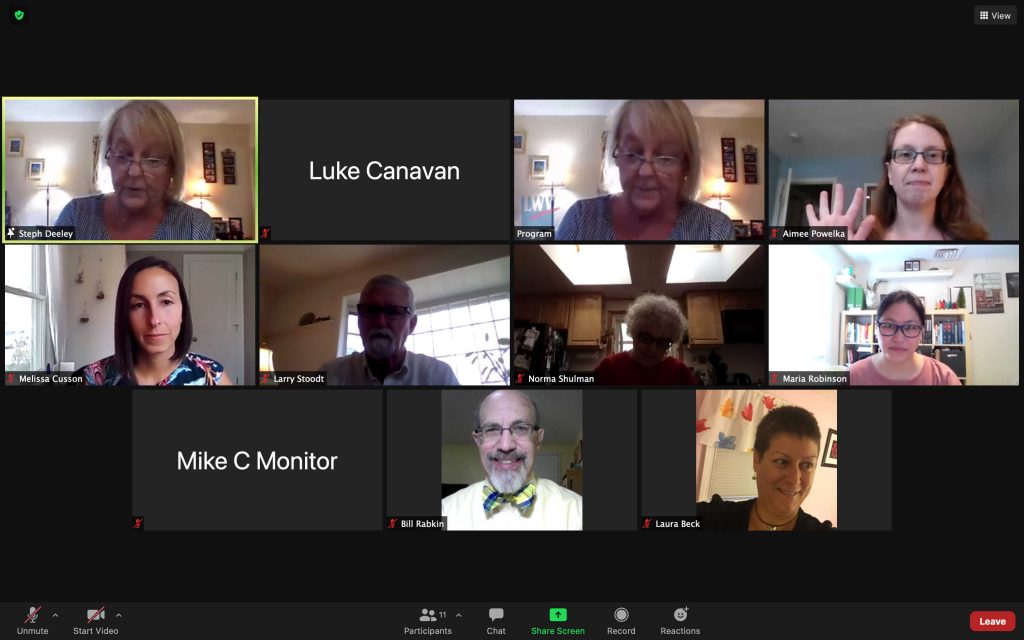
League of Women Voters panel April 24, 2021 
State Rep. Maria Robinson

